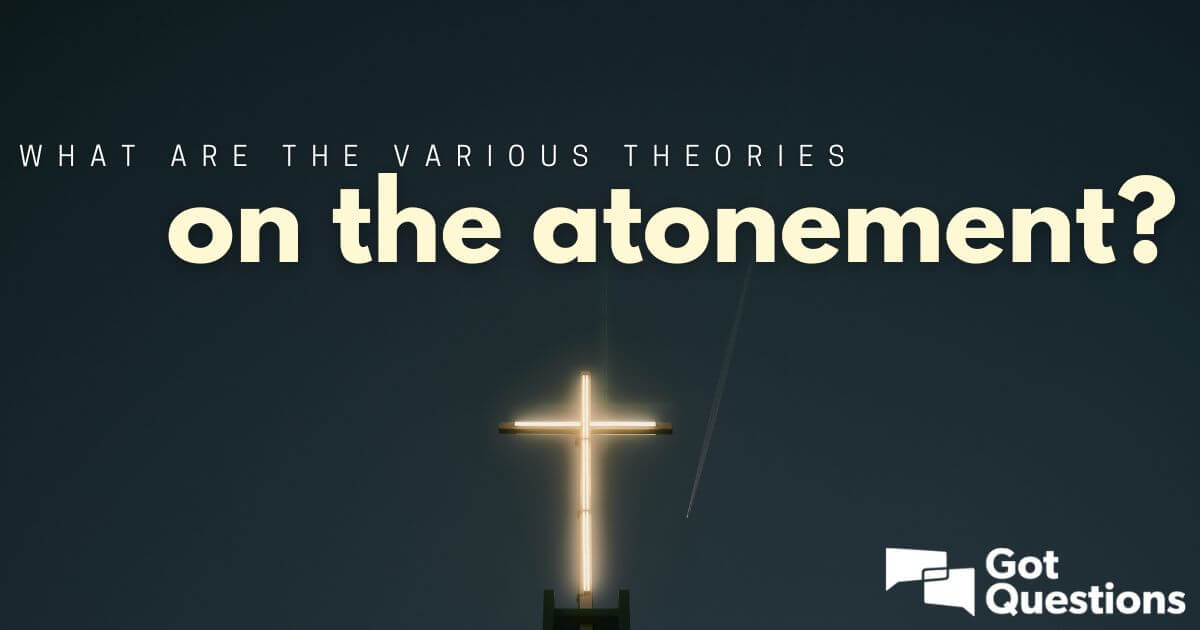Butch5
Member
- Jul 16, 2012
- 5,372
- 295
Hi Fredy,Hey Butch:
Trying to play devil's advocate here .... this is not life and death *giggle*
Hmmm .... I think both agree that Christians are forgiven
.... so can it be said that Christ paid a ransom/debt. Definitely had to die to satisfy God's holiness/justice.
Debt - something, typically money, that is owed or due.
Hmmm... there is the song ...
He paid the debt he did not own, I own the debt I could not pay
I needed someone to wash my sins away ... yahda, yahda
I don't think that qualifies as evidence ...cute aside though
There is the RANSOM TO SATAN THEORY ... I don't give that much credence
Hmmm, I can't come up with anything better... I guess I side with you. Fun mental exercise.
My whole point is that Christ didn't die to satisfy God's justice or holiness. That's where the forgiveness comes in. My argument is that Christ died to ransom mankind. That's the difference between the Penal and Ransom models.
The Ransone theory is the original teaching of the church. This satisfaction idea doesn't appear in the church until Anselm around 1100 AD. Here's a quote from Irenaeus, He was a student of Polycarp who was a student of the Apostle John. So, he's only one generation removed from the apostle.
Irenaeus, Against Heresies, Book 5, Chapter 1
1. For in no other way could we have learned the things of God, unless our Master, existing as the Word, had become man. For no other being had the power of revealing to us the things of the Father, except His own proper Word. For what other person “knew the mind of the Lord,” or who else “has become His counsellor?” Again, we could have learned in no other way than by seeing our Teacher, and hearing His voice with our own ears, that, having become imitators of His works as well as doers of His words, we may have communion with Him, receiving increase from the perfect One, and from Him who is prior to all creation. We — who were but lately created by the only best and good Being, by Him also who has the gift of immortality, having been formed after His likeness (predestinated, according to the prescience of the Father, that we, who had as yet no existence, might come into being), and made the first-fruits of creation — have received, in the times known beforehand, [the blessings of salvation] according to the ministration of the Word, who is perfect in all things, as the mighty Word, and very man, who, redeeming us by His own blood in a manner consonant to reason, gave Himself as a redemption for those who had been led into captivity. And since the apostasy tyrannized over us unjustly, and, though we were by nature the property of the omnipotent God, alienated us contrary to nature, rendering us its own disciples, the Word of God, powerful in all things, and not defective with regard to His own justice, did righteously turn against that apostasy, and redeem from it His own property, not by violent means, as the [apostasy] had obtained dominion over us at the beginning, when it insatiably snatched away what was not its own, but by means of persuasion, as became a God of counsel, who does not use violent means to obtain what He desires; so that neither should justice be infringed upon, nor the ancient handiwork of God go to destruction. Since the Lord thus has redeemed us through His own blood, giving His soul for our souls, and His flesh for our flesh, and has also poured out the Spirit of the Father for the union and communion of God and man, imparting indeed God to men by means of the Spirit, and, on the other hand, attaching man to God by His own incarnation, and bestowing upon us at His coming immortality durably and truly, by means of communion with God, — all the doctrines of the heretics fall to ruin.
Early Church Fathers - – Ante-Nicene Fathers: The Writings of the Fathers Down To A.D. 325.









